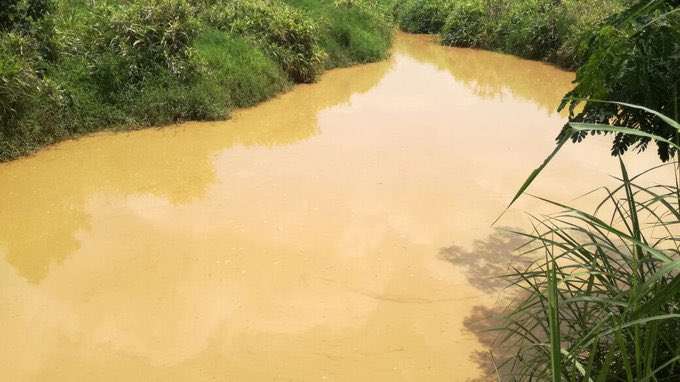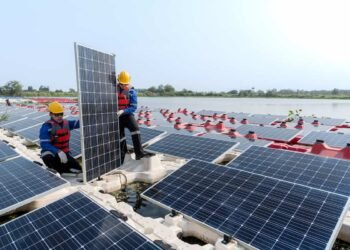Joseph Whittal, the Commissioner of the Commission on Human Rights and Administrative Justice (CHRAJ), has expressed strong disappointment in President Nana Addo Dankwa Akufo-Addo’s failure to effectively combat illegal mining, commonly known as ‘galamsey’.
Speaking in a recent interview, Mr. Whittal voiced concerns about the President’s unfulfilled promise to curb the environmentally destructive and health-threatening practice that continues to plague Ghana.
During his 2016 election campaign, President Akufo-Addo declared an unwavering commitment to eradicating galamsey, stating that he would put his presidency on the line to ensure its elimination.
However, several years into his tenure, illegal mining remains rampant, causing significant damage to the country’s water bodies, forests, and farmlands. This, according to Mr. Whittal, represents a severe lapse in governance and accountability.
“The Commission feels so disappointed in the fight against galamsey and artisanal mining. We are disappointed that no less a person than the President would put his presidency on the line and yet fail to deliver on this critical promise.”
Joseph Whittal, Commissioner of the Commission on Human Rights and Administrative Justice (CHRAJ)
The CHRAJ Commissioner emphasized that promises made by a sitting President carry weight, particularly when they pertain to issues as consequential as environmental degradation and public health.
For Mr. Whittal, the failure to effectively address the galamsey crisis has broader implications, particularly for the health of millions of Ghanaians.
“Presidents don’t promise and fail on their promises. For what has happened, which has dire implications on the health of so many Ghanaians, I must say the government and the President have disappointed Ghanaians,” Mr. Whittal remarked.
Galamsey, largely driven by the demand for gold, has left Ghana’s rivers contaminated with toxic chemicals like mercury and cyanide.
The destructive nature of illegal mining has not only decimated forests and water bodies but also led to the displacement of local communities and increased health risks, particularly through polluted drinking water.
Several communities in regions like Ashanti, Western, and Eastern Ghana have reported severe shortages of clean water, forcing people to rely on unsafe sources. Health officials have raised concerns about the long-term effects of mercury poisoning, including cognitive impairments and serious organ damage.
Mr. Whittal stressed that the silence of the government on such an urgent issue is both puzzling and alarming, given the long-term environmental and health consequences of illegal mining.
He also highlighted that President Akufo-Addo’s lack of strong action undermines his credentials as a leader who claims to prioritize the welfare of the people.
Call for a State of Emergency

The CHRAJ Commissioner also aligned himself with growing calls from various sectors of society for the declaration of a state of emergency in response to the galamsey crisis.
“I have heard some people call on the President to declare a state of emergency, and I actually subscribe to that. Why wait? If you look at the pollution and the effects it is already having…it appears the government seems unconcerned and is ignoring all these worrying trends. I don’t understand.”
Joseph Whittal, Commissioner of the Commission on Human Rights and Administrative Justice (CHRAJ)
Declaring a state of emergency, he argued, would allow the government to employ extraordinary measures to halt illegal mining, enforce stricter regulations, and provide necessary resources to protect water bodies, farmlands, and forests.
For Mr. Whittal, the government’s inaction on galamsey is a betrayal of the trust placed in it by the people of Ghana. He called on President Akufo-Addo to demonstrate his leadership by taking immediate steps to halt illegal mining and preserve the country’s natural resources for future generations.
The CHRAJ Commissioner further emphasized that addressing galamsey is not only an environmental and public health issue but also a matter of human rights. He pointed out that the devastating impact of illegal mining on livelihoods, especially for rural communities, is a direct violation of citizens’ rights to a safe and healthy environment.
With only a few years left in his presidency, President Akufo-Addo faces mounting pressure to fulfil his promise and leave a lasting legacy in the fight against illegal mining. Whether his administration will heed the call to declare a state of emergency and take meaningful action remains to be seen.
READ ALSO: The Film Industry: Struggling to Stay Afloat Amid High Demand



















